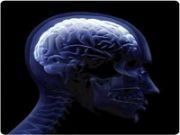Integrating Non-pharmacologic Modalities into Major Depressive Disorder Treatment
Evidence shows that interventional approaches such as transcranial magnetic stimulation, electroconvulsive therapy, deep brain stimulation, and bright light therapy, coupled with mindfulness-based cognitive therapy, can be an effective part of treatment for major depressive disorder.

What if there was a non-pharmacological approach to treating patients with major depressive disorder (MDD)? What if that treatment had the potential to be even more successful than current pharmacological approaches? William M. Sauvé, MD, clinical director of the Military Program at Poplar Springs Hospital in Petersburg, VA, believes the possibility may lie in magnetic and electrical stimulation of the brain. In his opinion, clinicians need to take a more aggressive approach in terms of treating MDD.
One approach is Transcranial Magnetic Stimulation (TMS). With TMS, an electromagnetic coil is placed against the scalp to deliver pulses of four seconds in duration, 10 pulses each with a therapeutic dose of 90-120% of motor threshold for approximately 30-50 minutes per session, five times a week for a total of 4-6 weeks of treatment. Sauvé said that the current meta-analyses of TMS (which is FDA approved) illustrates a small to moderate benefit in terms of treating depression. In addition, Sauvé advised that, “TMS can be used in clinical practice for patients with mild to moderate treatment resistance.”
Another nonpharmacologic approach to the treatment of MDD involves the use of Electroconvulsive Therapy (ECT). In ECT, a small potential electrical charge is focused toward the frontal cortex, stimulating the cortical and sub-cortical tissue. However, up to 95% of this electrical activity is shunted by the skull itself. ECT usually involves an average of 6-12 treatments and it can be used in urgent situations such as suicidality. Current ECT treatment produces a response in patients after only a few sessions and has the highest response rate of any depression treatment.
Unfortunately, the relapse rate is high after remission and there is no evidence to support that treatment with medication could alleviate this effect. In addition, memory loss does frequently occur following treatment. However, Sauvé said that, “Right unilateral (stimulation) may have fewer memory effects than bilateral.” Sauvé also noted that, “Neurostimulation therapies that also hold promise include transcranial direct current stimulation, magnetic seizure therapy, and deep brain stimulation.”
According to Sauvé, there is also evidence to suggest that bright light therapy, which is commonly used to treat seasonal depression, can in fact be a successful treatment for depression in general. With information emerging from multiple disciplines regarding the positive benefits of exercise, Sauvé also urges clinicians to incorporate an exercise program into treatment to increase efficacy in depression.
For MDD patients who are considered to be in recovery, Sauvé said clinicians should consider the use of mindfulness-based cognitive therapy in 8-week skill sessions to further educate patients on enhanced self-compassion, decrease avoidance, increase acceptance, and decrease rumination. This may be administered in either a group setting or through electronic media.
It is interesting to note that Sauvé believes that mindfulness therapy could be used as a tool for MDD patients as a way of helping them process their emotions. He said MDD patients have a hard time distinguishingbetween a “sad mood” versus “deep dark depression” and are often terrified when they feel sad feelings surface. He believes that if patients would become more aware of what is going on with their bodies by practicing mindfulness and increased self-awareness, they could learn to spot the difference between emotion and severe depression.